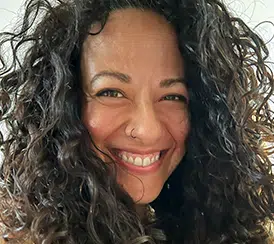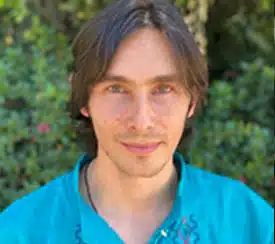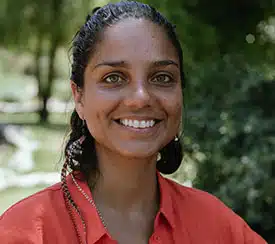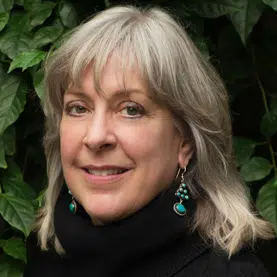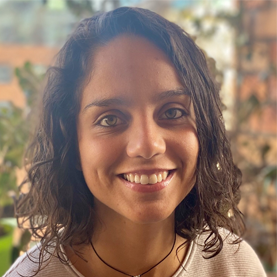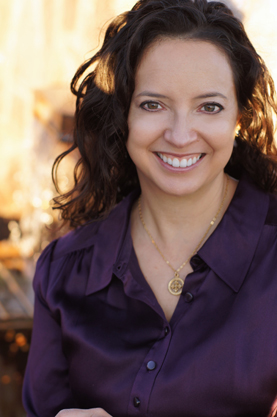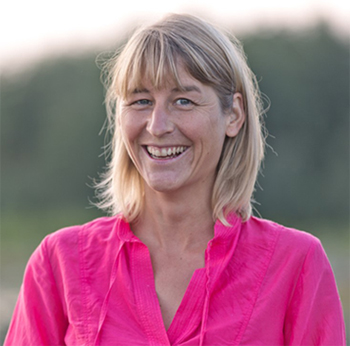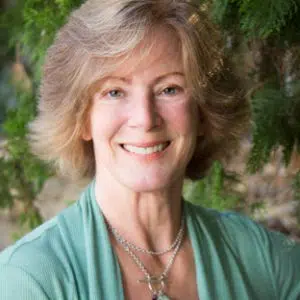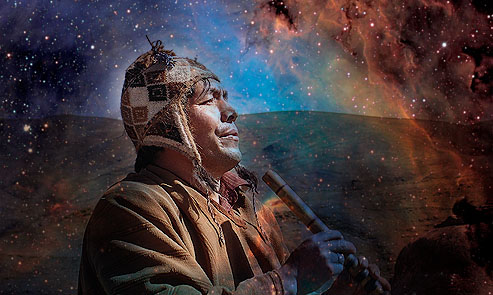
Inkari and his mate Collari were the mother and father of the Inka Nation. When they arrived in the fertile Sacred Valley, it was already densely populated. Inkari promised the chiefs that they would not take their lands, that the mountains would provide their corn. Thus, the Inka began to terrace the sides of the hills. They built irrigation canals to water the terraces, and prepared soils that absorbed moisture to water the plants from their roots.
I was touched by Don Manuel’s statement that Inkari’s experiment had failed. I knew that the Inka Nation in its early days were great integrators. They assimilated the various warring neighbors, respecting their customs and honoring their local deities. Yet later, after the death of the great Inka Pachakuti, the grand architect of Machu Picchu, the Inka became increasingly militaristic and bent on conquest.
Their military power helped the Inka become the undisputed rulers of a vast and rich kingdom, until the arrival of the conquistadores. In a few short years, Spanish guns, horses, armored men, and steel blades decimated the greatest empire the Americas have known. I had read about the Spanish Conquest but had never heard the view of the Q’ero. History is written by the winners, not by the vanquished. So Don Manuel’s perspective was new and profound for me.
The experiment of the man-god had failed. Greed and military might had eclipsed the founding principle of generosity. Yet Inkari would return. There would be a second chance. And the Q’ero, the protectors of the wisdom and keepers of the prophecy, had a part to play in this.
I turned to Don Manuel and asked, “So your people’s reason for being is to provide the breeding stock for Inkari to be born?”
“No,” he replied. “Inkari could be born anywhere, even to an American mother. He could even be a child of yours. We simply hold the wisdom of ayni, of generosity, of the giveaway. This is what will permit the new Empire of the Children of the Light to rise and mark the beginning of a millennium of gold and peace on Earth.”
Frankly, I did not like hearing this. It sounded a bit too messianic, too much like the Christian dogma I had been raised with, announcing the second coming of Christ and establishing the kingdom of heaven on Earth, together with the banishing of the forces of darkness by legions of angels with flaming swords. Yet I know that Don Manuel had not been exposed to Christian dogma and had never been inside a church.
“We are not waiting for a child to be born, but for a person to become like a god. This requires that you make perfect ayni, that the universe reflect back perfectly the condition of your love, of your actions, and of your intent. That you practice the great giveaway, that you hold on to nothing, not even your name or ideas about who you are and what you own.
“For example,” he continued, “you have everything a man could want. You have shoes, a house, even a car and money. You have a title of doctor and people respect you for that.”
He looked down at my fancy leather hiking boots and then back at his sandals and bare feet. He wore these sandals winter and summer, in the heat and the cold.
“On the other hand,” he said, “I own nothing, but have the snowcapped Andes and the fertile valleys. I belong to them, and I guess in a way they belong to me as well. But I do not own them. This is where the experiment of Inkari fell apart. The Inka wanted to own the people and the land, even their stories and their gods.”
“What is the experiment?” I asked. “The one that failed in the Inka Empire?”
“It’s the experiment of k’anchaypa wawankuna, the children of the light. You see, the first Inka started in a good way. Then they were seduced by power. They stopped giving and began taking. They took people’s lands, their young men were forcefully drafted into the Inka armies, the young women were taken from their families to the temples as servants.”
He continued, “They called themselves the children of the Light but forgot that the light is all giving. It asks for nothing in return. It warms the rich and the poor alike. Every morning the sun rises faithfully and is the source of the life of our plants. When we put a log into the fire, we are setting free the sunlight that is trapped inside the trunk and branches of that tree. Every season, a bit more light is stored in every tree as it grows strong.
“With men it is different. Men are born filled with a heavenly light. But the older they get the more their light diminishes, until they are wrinkled and gray and have very little light left. And then they flicker out like a candle that has burned down all the way.
“And then they come back in at another time, and get a chance to make things right.”
.
